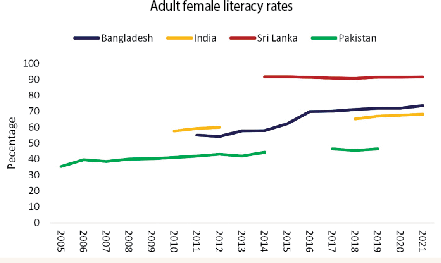WILL the PTI’s model of a welfare state serve as a catalyst to laying the foundation of an egalitarian society where, as the party manifesto claims: ‘Every Pakistani feels empowered, has control over their own lives in a just and equitable environment?’
In a recent interview Prime Minister Imran Khan stated that ‘everything we strive for … will be a welfare state, with the ‘Riyasat of Madina’ serving as a model.’
While Finance Minister Umar Asad claimed that a reduction in the current account deficit, now at $2 billion per month, is ‘our primary target and (economic) growth at the moment becomes secondary.’
Mr Khan advised a PTI member to draft a parliamentary bill that will declare Pakistan a welfare state but, with an ‘empty treasury’, there is hardly any scope to initiate a meaningful socioeconomic uplift programme
And in the ongoing, prolonged negotiations, the International Monetary Fund (IMF) has advised Pakistan to cut current spending on debt servicing, subsidies and defence to improve macroeconomic fundamentals.
But whenever the fiscal and current account deficits mount, the axe falls on development and public welfare budget.
Though Mr Khan has initiated a few symbolic measures to shed fat, they fall far short of the need to reform an unwieldy and expensive administrative apparatus afflicted with institutional tensions and resistant to change. The ideas floated here and there have yet to be translated into implementable action plans.
Still focused on party vision after five months in power, Mr Khan last month also advised a PTI-member to draft a parliamentary bill that will declare Pakistan a welfare state … where a ‘social welfare safety net is provided to the marginalised and the discriminated against.’
With an ‘empty treasury’ (a term coined by PTI leadership), there is hardly any scope to initiate a meaningful socioeconomic uplift programme in the public sector. These days, even in the most developed economies, many cash-strapped governments, are reducing spending on their social safety nets.
It is also a challenging job for the PTI to forge a welfare state designed to ‘lay the foundation of an egalitarian society’ though doing so would be in-line with the times and worth struggling for.
The PTI manifesto can be seen as part of a worldwide search mounted since the Great Recession of 2007-08 to build an inclusive national model of economic growth that blends with the changing international economic landscape.
Apart from ‘America First’ and ‘Brexit,’ adjustments are also visible in policies of multilateral lending agencies. For example, during his recent visit to Pakistan, Director General of the Asian Development Bank’s (ADB) Strategic Policy and Review Department, Tomoyuki Kimura informed the media on Dec 19 that ‘privatisation should be a tool and not an end itself.’
Similarly, while rejecting ‘command economy’ in an article titled ‘case of mixed economy’, Nobel Laureate Paul Krugman says there is still a good case for a mixed economy. Public ownership and control can be a significant portion, though not a major component of that mix.
He says in the US a two-third component should be capitalist and one-third publicly owned or sort of socialist. Mr Krugman believes that education, health, drug manufacturing and public utilities, possibly some others, can be better managed in the public sector.
On the other hand, the strategy for achieving the UN Sustainable Development Goals (SDGs) which enjoys a consensus in the international community, envisages a broad-based coalition of business, citizens and the state to work together for common socioeconomic objectives.
With the exception of drug manufacturing, the other sectors Mr Krugman has identified are largely run in Pakistan for low income groups by the state, where quality of service delivery in health and education is much below that of the private sector and is now being improved through public-private partnerships.
Though committed in principle to privatisation, the PTI-government wants to retain ‘strategic assets’ like PIA and Pakistan Steel Mills in the public sector.
Pakistan’s experience with the mixed economy has been an initial success as it did help to push-up industrialisation for a while but most state enterprises finally turned into loss-making entities.
PPP founder Zulfiquar Ali Bhutto gave the 1973 Constitution that provided for a federal, democratic and egalitarian system — a mixed economy skewed in favour of the public sector, strengthened by nationalisation and supported by bureaucracy.
The 18th Amendment and the 7th National Finance Commission award have reinforced democratic federalism, but in sharp contrast to constitutional provisions, have weakened local bodies.
PPP’s egalitarianism was snared in a bureaucratic cobweb as citizen-based democracy was not allowed to flower and grow.
The PTI is committed to devolving power and decision-making through empowered local bodies. But the proposed empowerment is still short of the constitutional provision to allow local bodies to raise their own resources for their needs.
However, the PTI-led Punjab government has raised allocation for district government to 30 per cent of the provincial budget as the party did earlier in Khyber Pakhtunkhwa.
Owing to social exclusion in this phase of economic development, the issue of poverty — fair distribution of income and assets — resides in the mainstream of economic activities. A study by IMF researchers shows that ‘income distribution belongs to the pantheon of critical growth determinants’.
Published in Dawn, The Business and Finance Weekly, January 7th, 2019


































